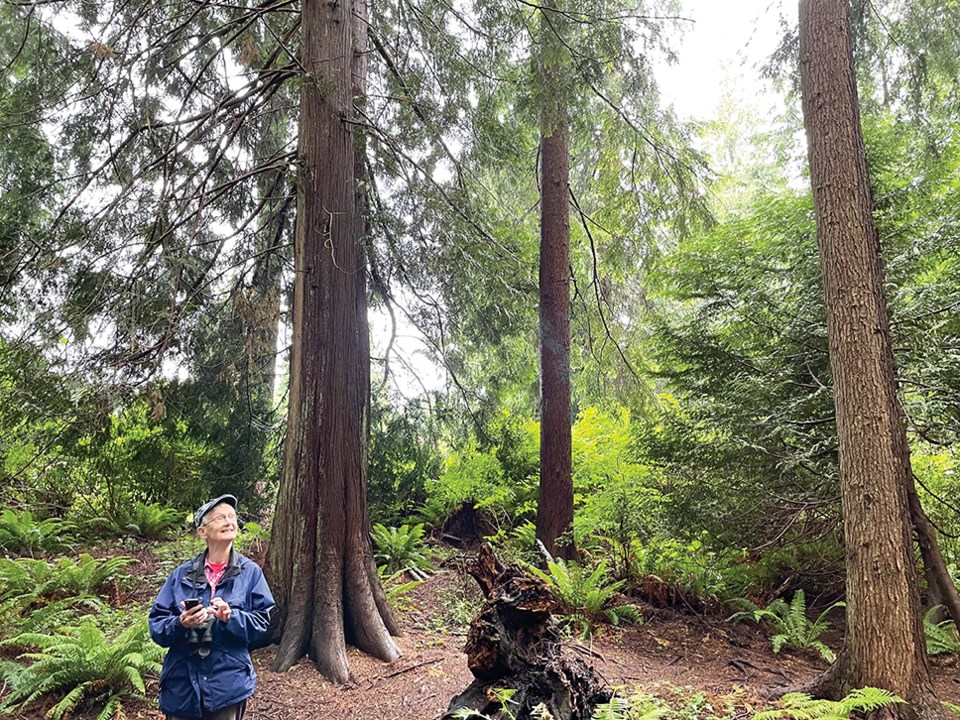A few years ago, I decided to learn more about birds but have to admit to not keeping up my “studies.” It was frustrating trying to spot songbirds that I could hear but not see. They’re so elusive! Then I met Rozanne Thomson who’s been attending Elphinstone Community Association meetings and found out that she’s practically a next-door neighbour. Rozanne is especially interested in birdsongs; a great way to identify them when you cannot see them. I begged her to take me out with her for a “listening” experience and can now identify at least a few by their songs. Our property is quite wooded and for years I’ve been hearing a certain beautiful song every spring; thanks to Rozanne, I now know I’ve been hearing the lilting notes of the Swainson’s thrush, a drab little bird that rewards the listener with its lovely melody.
A favourite spot of Rozanne’s is Chaster Forest, and walking there with her, she identified several white-crowned sparrows, towhees, and a black-headed grosbeak by sound. We came across a small congregation of chestnut-backed chickadees, flitting through the underbrush. She submits her tallies to eBird, which she says, “helps experts all over the world monitor bird populations and thus see where the greatest needs for amelioration are. This is where ‘citizen scientists’ play an important role with our contributions. Sometimes we feel helpless at the bad news, but this is a tiny thing I can do.”
Ebird is an international enterprise hosted by Cornell University that harnesses the expertise of individual birders who log and submit checklists, helping to monitor bird populations worldwide. Interest in birding has greatly increased with COVID, although now birdsong is quieting down as birds mostly sing in the spring during mating and nesting, although Rozanne assures me that the Swainson’s thrush and the black-headed grosbeak might be singing for a while yet, being later arrivals.
In other news, in light of the speeder on Pratt nabbed by the RCMP going more than double the speed limit, Susan Rule and other sign makers created more “go slow” signs. How many signs will it take for people to recognize that Pratt is a residential street? There are often pedestrians and cyclists on the road, and as for wildlife – they don’t stand a chance with speeders. Hopefully people will get the message and obey speed limits, especially with an increased RCMP presence.
I hope everyone survived that unbearable heat! We’re living in a time of climate emergency and likely to have more such events. All of our ingenuity and effort will be needed to deal with the problems we ourselves have created by burning through unprecedented amounts of fossil fuels. With summer water restrictions now in force, why not keep a basin in the sink so that when washing fruit/vegetables, etc. (but not soapy dishwater) the water can be reused? Empty the water outside onto plants most in need – which is all of them! It’s an easy habit to get into; I empty a few basins every day – every conservation habit adopted helps when they’re all added up.
Got other tips or Elphinstone news? Send it to me at: [email protected]



